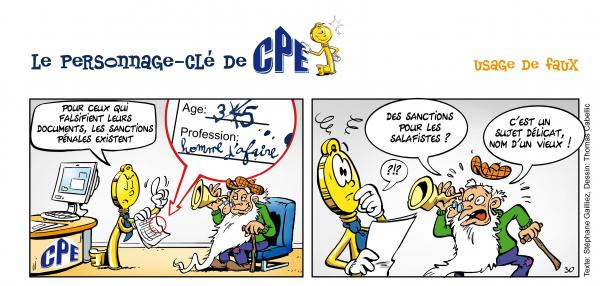
Generally speaking, as a borrower, you are bound from the moment you sign a credit contract. The law nevertheless authorizes you to renounce your commitment as long as the lender’s general conditions provide for it in a clear and concise manner. Let’s take stock of this significant protection organized by the legislator for consumers.
Deadlines for a credit contract
As a consumer, you can renounce the credit contract for a period of fourteen days from the signing of your contract. The law covers “calendar days”, that is to say each day of the week, including Saturdays, Sundays and legal holidays.
However, the law provides that the fourteen-day period may begin to run on the day the consumer receives the general conditions, if this date is later than the date of conclusion of the credit contract.
Exercise of the right of withdrawal
You are never required to give reasons for why you wish to use your right of withdrawal. Furthermore, the law is not very formal since you just need to notify the financial organization, by registered letter to the post office or by any other medium accepted by your co-contractor (for example, a simple ordinary letter or an email ), your intention to renounce the contract.
The deadline is deemed to have been met if the notification was sent before its expiry. It therefore does not matter whether the lender receives your letter after the fourteenth legal day since it is the date of shipment (postmark) that is decisive.
Consequences
If this is a credit contract under which property is made available to you, you must return it immediately after notification of withdrawal. It goes without saying that the right of waiver is not applicable if you have consumed, damaged or lost the good.
For any other credit contract, that is to say when you receive capital, you are required to immediately repay this capital to the lender and at the latest within 30 calendar days following notification of the waiver. In both cases, you will be required to pay the interest due for the credit withdrawal period, calculated on a daily basis at the agreed borrowing rate.
Withdrawal from the credit contract automatically results in the cancellation of accessory service contracts. For example, your outstanding balance insurance contract will also end, so the insurance premium already paid must be returned to you.
The lender will not be able to claim any other compensation from you for any reason whatsoever.






 Counterfeiting is inevitably accompanied by fraud or attempted fraud. Fraud is punishable by correctional imprisonment of one month to 5 years under article 496 of the Belgian Penal Code.
Counterfeiting is inevitably accompanied by fraud or attempted fraud. Fraud is punishable by correctional imprisonment of one month to 5 years under article 496 of the Belgian Penal Code.

